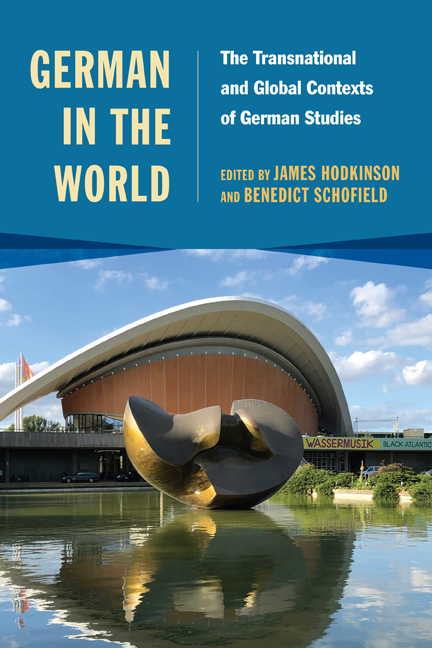10 - Towards a Socially Engaged Academy: Islam in German History and Its Relevance for Nonacademic Publics
Published online by Cambridge University Press: 06 October 2020
Summary
Conceiving Impact
SINCE 2007 I HAVE BEEN engaged in research into the representation of Islam and Muslims in German-speaking culture from the late Enlightenment to the early nineteenth century. Latterly I have also been working to make my material and themes, and my critical discussion of them, more relevant to nonacademic communities in the United Kingdom, despite my work's obvious anchoring in a historical and cultural context detached from that of contemporary Britain. This has taken the form of an ambitious public-facing project, which has run from 2015 to date. The project, which has trialed differing methods for making my work more widely accessible and beneficial to nonacademic audiences, has also been shaped by a series of wider political contexts within the United Kingdom and further afield. The first of these has been the growth in global Islamist terrorism and the rise of ISIS / the Islamic State, and wars in Iraq, Afghanistan, and Syria, as well as the resurgence of parochial nationalisms and populism within the political and media cultures of many Western democracies, often marked by Islamophobic rhetoric and treatments of Islam focused on its apparent “externality” and “otherness.” In this context, any academic work that seeks to impact the public sphere and raise awareness of how political forces shape the ways in which one culture views and represents another might be felt to be of broad social value.
Yet my work has also coincided with key developments within British academia referenced in this volume's introduction: the rise of the “impact” agenda, by which academics and their departments were compelled not only to submit research for peer-reviewed assessment but also to engage in project work that developed ways of extending and measuring its benefit to the nonacademic world. What is being termed in this volume as the natural “porosity” of the academy in its relationship to different sectors of society became, for a researcher working in my field and at this time, both a compulsion and an opportunity.
The project brought with it a number of requirements and challenges.
- Type
- Chapter
- Information
- German in the WorldThe Transnational and Global Contexts of German Studies, pp. 191 - 215Publisher: Boydell & BrewerPrint publication year: 2020



